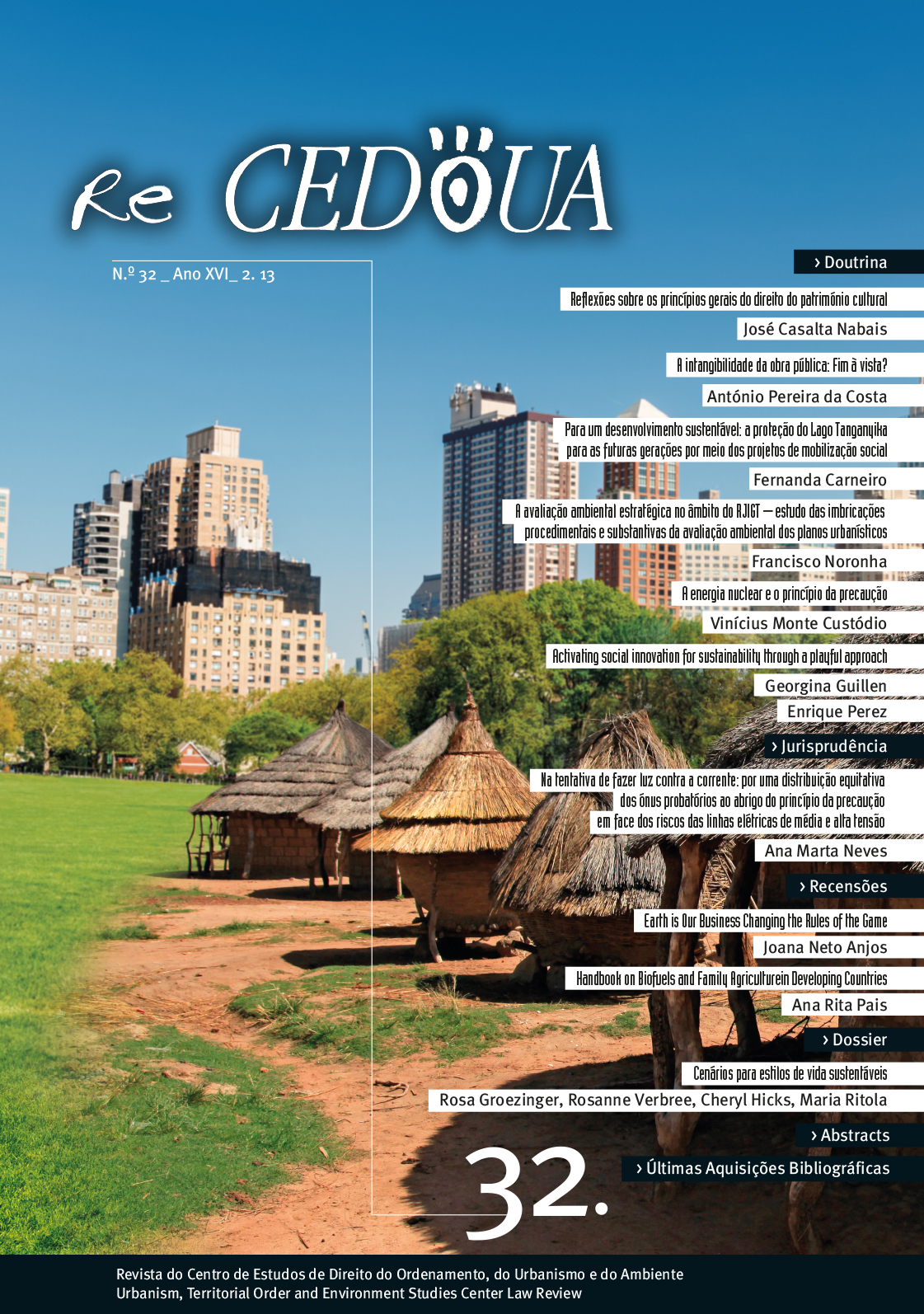The Intangibility of Public Works: An End in Sight?
DOI:
https://doi.org/10.14195/2182-2387_32_2Keywords:
Public works, principle of intangibility, human rights, expropriation, demolitionAbstract
The principle of the intangibility of public works, created through case law in 1853, was adopted in its country of origin, France, as well as in Italy and, in Portugal, by the civil courts. From the early 1990s onwards, influenced by French and Italian legal doctrine and, above all, by the European Court of Human Rights, the principle began to be applied in a more mitigated manner and was even repudiated by the Italian legislature. This text aims to provide an overview of its evolution and current status.
Downloads
Downloads
Published
Issue
Section
License
Copyright (c) 2013 António Pereira da Costa

This work is licensed under a Creative Commons Attribution 4.0 International License.
Authors retain copyright and grant the journal right of first publication with the work simultaneously licensed under a Creative Commons Attribution License that allows sharing the work with recognition of authorship and initial publication in Antropologia Portuguesa journal.



